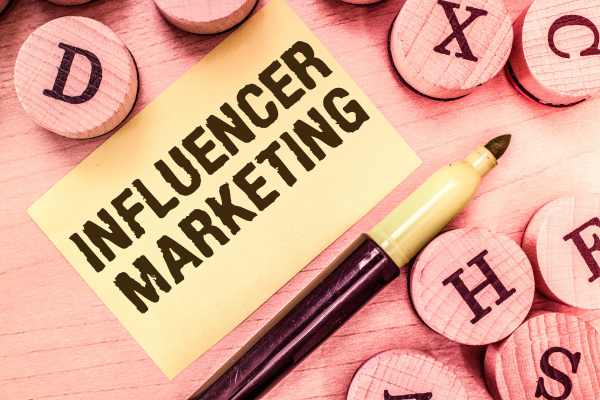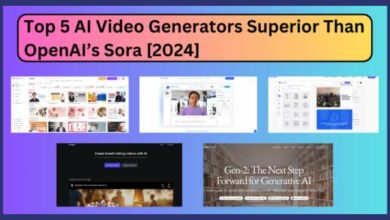In recent years, the marketing landscape has witnessed a significant shift with the emergence of AI influencers. These virtual individuals, powered by artificial intelligence, have taken the digital world by storm, captivating audiences with their lifelike appearances and persuasive content. AI influencers are virtual entities designed to mimic real-life influencers, with their own unique personalities, interests, and styles. They have become a powerful tool for brands to connect with their target audience and drive engagement. As technology continues to evolve, AI influencers are expected to play an increasingly prominent role in shaping the future of influence in the marketing industry.
One of the key advantages of AI influencers is their ability to operate 24/7 without any limitations. Unlike human influencers who have limitations in terms of availability and capacity, AI influencers can continuously create content and engage with their audience. This means that brands can maintain a constant presence in the digital world, reaching their target audience at any time of the day. Moreover, AI influencers can easily adapt to different time zones and languages, making them ideal for global marketing campaigns.
However, the rise of AI influencers has also raised concerns regarding authenticity and transparency. As AI influencers become more sophisticated, it becomes increasingly difficult for consumers to distinguish between real and virtual influencers. This has prompted the need for guidelines and regulations to ensure transparency in influencer marketing. Brands must be diligent in disclosing the use of AI influencers to maintain trust and credibility with their audience. Despite these challenges, the potential of AI influencers to revolutionize the marketing industry cannot be ignored.
How to identify AI influencers from real influencers
With the increasing presence of AI influencers in the digital world, it is crucial for brands and consumers to be able to distinguish between AI influencers and real influencers. While AI influencers are designed to appear as lifelike as possible, there are certain characteristics that can help identify their virtual nature. One way to identify AI influencers is to look for signs of perfection. AI influencers are often flawless, with impeccable skin, hair, and features. They may also exhibit an otherworldly quality, with an uncanny ability to never age or change.
Another way to identify AI influencers is to examine their content and engagement patterns. AI influencers tend to have a consistent level of engagement, with a high number of likes, comments, and shares on their posts. This is because their creators can program them to generate content that resonates with their target audience. Real influencers, on the other hand, may have more variable engagement levels, depending on the quality and relevance of their content.
Furthermore, AI influencers often have a limited online presence outside of their social media platforms. They may not have personal websites or a history of past collaborations with brands. Real influencers, on the other hand, typically have a more extensive online presence, with a portfolio of past work and collaborations. By carefully analyzing these factors, brands and consumers can differentiate between AI influencers and real influencers.
The future of AI influencers and their impact on the marketing landscape
As technology continues to advance, the future of AI influencers looks promising. With advancements in artificial intelligence and machine learning, AI influencers are expected to become even more realistic and sophisticated. They will be capable of seamlessly integrating into various media formats, including videos, podcasts, and virtual reality experiences. This will enable brands to create immersive and engaging campaigns that captivate their audience.
Moreover, AI influencers have the potential to revolutionize the concept of personalization in marketing. By leveraging data and insights gathered from their interactions with users, AI influencers can deliver highly targeted and personalized content. This level of customization will enable brands to create more meaningful connections with their audience, leading to increased brand loyalty and advocacy.
However, the rise of AI influencers also brings ethical considerations. As AI influencers become more advanced, there is a risk of them being used to spread misinformation or manipulate public opinion. It is crucial for brands and creators to use AI influencers responsibly and ensure that their content aligns with ethical guidelines. Transparency and disclosure will be paramount to maintain trust and credibility with the audience.
Case studies of successful AI influencer campaigns
To illustrate the potential of AI influencers, let’s explore some successful case studies. One notable example is the collaboration between fashion brand Balmain and AI influencer Shudu. Shudu, created by digital artist Cameron-James Wilson, gained significant attention for her striking beauty and high-fashion images. The partnership allowed Balmain to reach a wider audience and showcase their designs in a unique and innovative way. The campaign generated immense buzz and engagement on social media, resulting in increased brand awareness and sales.
Another successful AI influencer campaign is Lil Miquela, created by Brud. Lil Miquela is a virtual influencer who has amassed a large following on social media platforms. Through collaborations with various brands, Lil Miquela has been able to promote products and drive sales. Her unique aesthetic and engaging content have resonated with her audience, making her a highly sought-after influencer in the fashion and beauty industry.
These case studies demonstrate the potential of AI influencers to drive brand awareness, engagement, and sales. By leveraging the power of AI, brands can tap into new and exciting opportunities to connect with their target audience.
In conclusion, the rise of AI influencers is reshaping the marketing industry. These virtual entities have the power to captivate audiences, deliver personalized content, and drive engagement. As technology continues to advance, AI influencers will become even more realistic and sophisticated, offering brands new ways to connect with their audience. However, it is important to navigate the ethical considerations that come with AI influencers and ensure transparency and authenticity. The future of influence lies in the hands of AI, and it is up to brands and creators to leverage this power responsibly.

 PM Vishwakarma Yojana 2024: How to Apply Online; STEP-BY-STEP Guide
PM Vishwakarma Yojana 2024: How to Apply Online; STEP-BY-STEP Guide Pradhan Mantri Surya Ghar Yojana 2024: Scheme Details, Eligibility, Subsidy and How To Apply Online?
Pradhan Mantri Surya Ghar Yojana 2024: Scheme Details, Eligibility, Subsidy and How To Apply Online? Advancing Indigenous Healthcare: Exploring the Role of Clinical Governance
Advancing Indigenous Healthcare: Exploring the Role of Clinical Governance Top 5 AI Video Generators Superior Than OpenAI’s Sora [2024]
Top 5 AI Video Generators Superior Than OpenAI’s Sora [2024] Exploring the World of Live Dealer Games: A Beginner’s Guide
Exploring the World of Live Dealer Games: A Beginner’s Guide New and Improved: Betinexchange Renamed Funinexchange for Better Gaming Fun
New and Improved: Betinexchange Renamed Funinexchange for Better Gaming Fun Common Mistakes to Avoid While Taking a Loan Online
Common Mistakes to Avoid While Taking a Loan Online Legendary Hooves: Top 5 Unforgettable Horses in Preakness History
Legendary Hooves: Top 5 Unforgettable Horses in Preakness History